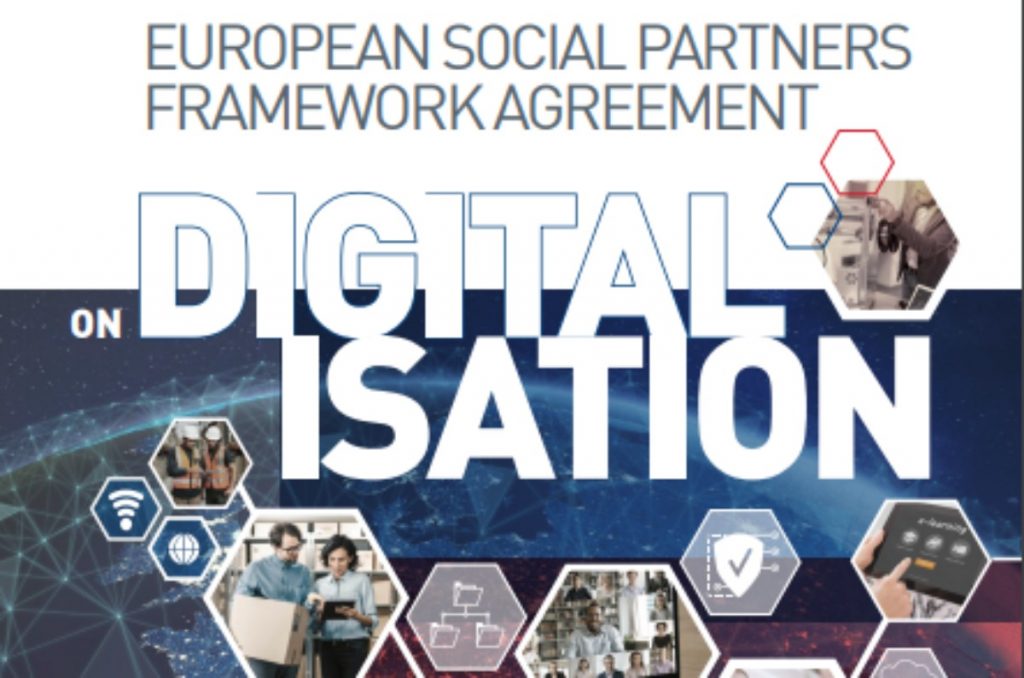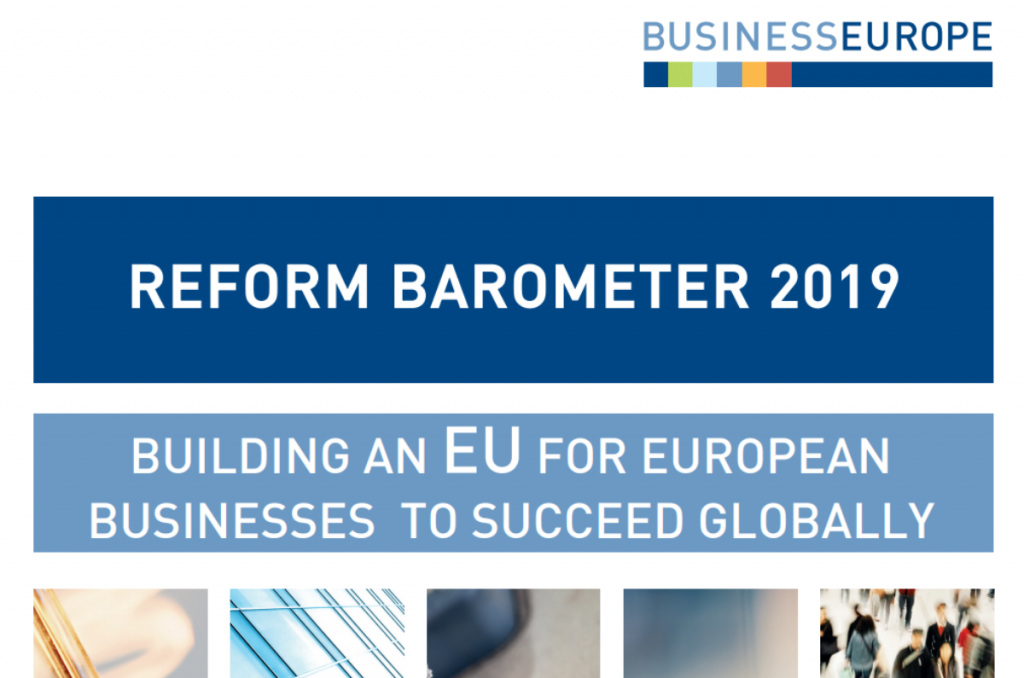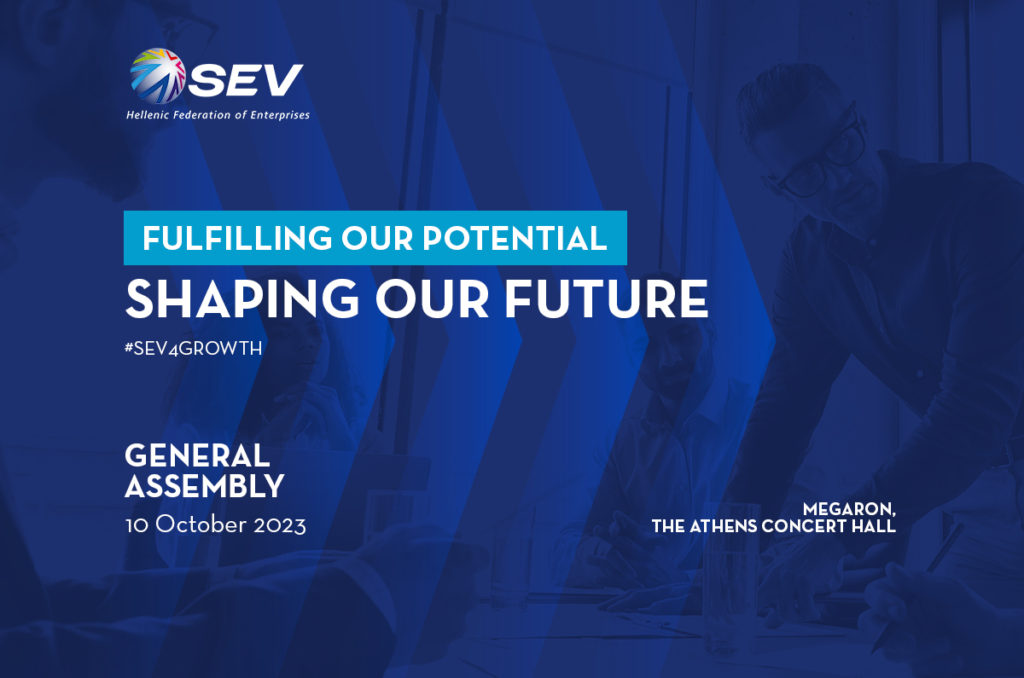
“AI in Action”: SEV’s first conference on Artificial Intelligence showcased real world AI applications by – and for – Greek businesses
- SEV members shared practical examples of AI applications in their companies.
- Only 1 in 4 businesses in Greece currently uses AI, according to SEV’s 2025 “Business Pulse” survey.
- SEV AI Bootcamp in collaboration with Alba: 20 hours of Generative AI training for non-technical executives of member companies.
On Monday, May 12, 2025, SEV held the conference “AI in Action: How to Implement Artificial Intelligence in Our Businesses”. The conference, one of the most targeted initiatives to date, highlighted practical AI applications for Greek businesses to the more than 1,000 business executives from SEV members who attended. Member companies of SEV presented real AI implementation examples in their business operations, showcasing the opportunities, challenges, and prerequisites for AI’s successful integration.
Opening the conference, SEV’s Chairman of the Board, Mr. Spyros Theodoropoulos, noted that “regardless of a company’s level of awareness about Artificial Intelligence, it is now a shared belief that it will decisively impact all our lives in the future and become a critical factor in boosting competitiveness. Greek businesses are starting to cautiously adopt AI, but they must accelerate and invest in the necessary resources and skills.”
The conference featured speakers from 35 companies, organizations, and startups – all early adopters – who highlighted not only the significant benefits of AI utilization but also the importance of dialogue and knowledge exchange to enhance understanding and build trust around AI among Greek businesses.
Specifically, practical applications of AI were presented across many critical aspects of business operations, including productivity, work efficiency, supply chain, marketing and sales, customer service, talent management, predictive maintenance, product research and development, energy management, financial management, and legal support. Dedicated panels and case studies showcased how AI is redefining workplaces, accelerating decision-making, optimizing internal processes, enhancing competitiveness, and supporting sustainable business growth. At the same time, the conditions for the broad adoption of AI, the skills required in the near future, and the strategic importance of technological readiness for Greek businesses were thoroughly analyzed.
This year’s “Business Pulse” survey by SEV included a special section on AI, confirming the need to accelerate its utilization as a factor of enhanced business competitiveness. In detail:
- Only 25.4% of businesses report having even some experience or exposure to Artificial Intelligence (AI). The remaining companies either haven’t started (18.5%) or have no plans to take action in the coming year (55.1%).
- The main areas where AI is already being used or is planned to be used include:
- Marketing & Sales: 56.3%
- Internal Operations: 50.4%
- IT: 35.5%
- The expected benefits from AI utilization, according to companies that already use or plan to adopt it:
- Better use of data: 68.4%
- Reduction of human error: 65.1%
- Process optimization: 63.8%
- Faster and higher-quality decision-making: 59.5%
- Increased productivity: 57.2%
- Improved customer satisfaction: 54.5%
- The greatest challenges in adopting AI:
- Lack of qualified human resources: 39.8%
- Compatibility of AI with existing IT infrastructure: 30.5%
- Limited relevance to the company’s business focus: 29.9%
- Data availability and quality: 29.2%
- Cybersecurity: 29.0%
- The most significant concerns expressed by businesses:
- Loss of sensitive information/data: 36.6%
- Wrong decisions based on AI recommendations: 26.9%
- Regarding the readiness of human resources to meet AI-related business needs over the next 3 years:
- Only 34.5% rate it as “strong or adequate”
- 58.9% consider it “limited or inadequate”
SEV also announced the launch of its new AI Bootcamp, an initiative aimed at developing AI skills within Greek businesses. The program, in collaboration with Alba Graduate Business School, consists of a 20-hour course aimed at non-technical executives of SEV member companies who will lead transformation initiatives using GenAI. The program is designed to:
- Develop understanding of key Generative AI concepts,
- Build and assess use cases with business value, and
- Disseminate knowledge within their organizations.
SEV’s “R U AI?” initiative to promote Artificial Intelligence in Greek businesses also includes other actions. SEV has published a “Practical Guide to AI” and is also running the in-company training program “AI for all”, in collaboration with Google, which has so far trained 1,750 employees from 12 member companies.
Mr. Markos Veremis, SEV Board Member, Head of SEV’s Committee on Technology & Digital Transformation, and Partner at BigPi Ventures, highlighted Larry Summers’ well-known quote: “Artificial Intelligence won’t replace people. But people who use it will replace those who don’t.”
Dr. Kyriakos Sabatakakis, SEV Board Member, Head of SEV’s Committee on Technology & Digital Transformation, and Chairman & CEO of Accenture, stressed: “Businesses integrating Artificial Intelligence into their operations must focus on their human capital to achieve a triple outcome: accelerate the creation of economic value, boost productivity, and offer more meaningful work to those who embrace AI. These employees will multiply their impact, increasing the output of innovative ideas and exploring new fields of activity with much greater ease and speed than in the past – thanks to AI’s capabilities.”
As SEV’s Executive Committee Chairwoman, Ms. Rania Aikaterinari, noted: “Successful adoption of AI doesn’t depend only on technology, but also on people, their training, and the experiences they gain throughout this technological journey. A prerequisite for successful integration is the familiarity and active participation of all employees, because the added value of the human element remains irreplaceable in the benefits that AI can offer.”
“The difficulty lies not so much in developing new ideas as in escaping from the old ones.” With this quote by John Maynard Keynes, SEV’s Chairman Mr. Spyros Theodoropoulos concluded the conference, urging businesses not to fall behind.
Watch the conference here (in Greek)
SEV would like to thank the following sponsors for supporting the event:
- Gold Sponsor: D.I.S. – Dynamic Integrated Solutions
- Silver Sponsors: Accenture, COSMOTE TELEKOM, Google
- Bronze Sponsor: TITAN Group
- Sponsors: Coca-Cola 3E, Grant Thornton, Siemens, UTECO SA, Vodafone, MOTODYNAMIKI
- Reception Sponsor: Coca-Cola 3E












